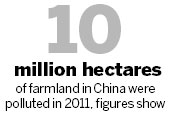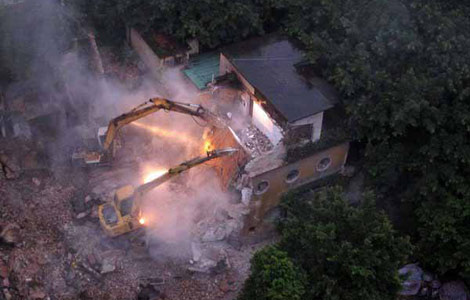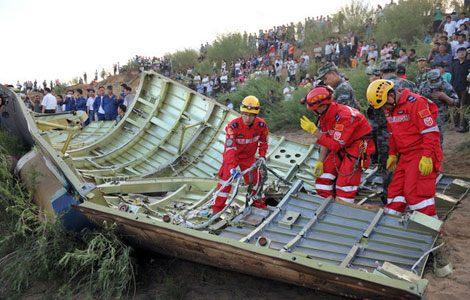
Findings likely to indicate densely populated areas more affected
The central government plans to conduct a nationwide soil pollution survey, according to the Ministry of Land and Resources.
Soil samples will be collected at different depths to find the natural condition of the soil and the impact human activity has had on it, the ministry said on Wednesday.
 |
The ministry did not say when the survey results will be released. It said previous investigations indicate that some regions are heavily polluted, particularly near the middle and lower reaches of the Yangtze River.
Comparing the investigation results with surveys in 1994 and 1995 will indicate that soil pollution is spreading to China's more densely populated eastern areas, the ministry said.
The public has asked authorities to issue soil pollution data, as well as detailed measures on handling the problem, following food safety scandals caused by soil pollution.
In May, authorities in Guangdong province said they had detected eight batches of cadmium-tainted rice and rice noodles at markets during the first quarter.
Cadmium-tainted rice and rice products were also found in two university cafeterias and two restaurants, although no reports of poisoning were received. Cadmium is a carcinogenic heavy metal that could induce multiple organ damage.
Three rice mills in neighboring Hunan province were investigated for selling the contaminated rice, and authorities in Guangdong ordered rice retailers to recall thousands of kilograms of tainted rice.
Investigations showed the three rice mills were operating legally with all the required certificates, according to the local government.
Although the source of the pollutants has not yet been found, experts believe the soil in some rice-producing areas has been contaminated by heavy metals.
A sample test of rice collected from 10 cities in Guangdong province since April showed 120 batches contained excessive levels of cadmium, with some batches containing six times more cadmium than allowed.
Hou Yanlin, a Ministry of Agriculture soil scientist, said the government should establish a monitoring and early warning system for soil contamination to enable it to assess how severe and widespread the pollution is.
Official disclosure of information on soil pollution is lacking in China. Statistics from the Ministry of Environmental Protection released in 2011 show 10 million hectares of farmland, or 8.3 percent of arable land in the country, were polluted.
Farmland in some prosperous coastal regions and industrial areas on higher ground were more seriously polluted.
Earlier this month, the Ministry of Environmental Protection said a national survey on soil pollution had been completed, but the results have not been published.
Zheng Fengtian, a professor at Renmin University of China, said that authorities should publish information on soil pollution regularly so the public is well informed.
Xinhua contributed to this story.







